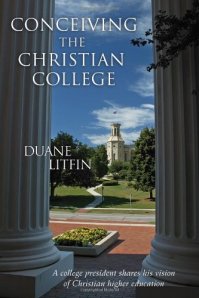Sociologist Christian Smith–a believing scholar at Notre Dame, formerly at UNC–has spent most of his career systematically surveying American religious beliefs. A prolific author, he is perhaps best known for his 2005 book (coauthored with Melinda L. Denton) Soul Searching: The Religious and Spiritual Lives of American Teenagers. Less well known outside academic circles is his 1998 study focused specifically on the values and beliefs of evangelical Christians in the U. S.–American Evangelicals: Embattled and Thriving.
The book’s title nicely captures its main argument. After undertaking extensive polling and conducting thousands of interviews, Smith and his team of researchers concluded that American evangelicals were thriving in large part because they were embattled. Evangelicalism was growing rapidly, in other words, “very much because of and not in spite of its confrontation with modern pluralism.” Evangelicals see themselves as taking part in an ongoing struggle with an unbelieving culture, Smith found, and that sense of struggle has given evangelicalism much of its religious strength.
The sense of cultural struggle Smith alludes to has surely had its benefits for the life of the mind. Most notably, as Smith points out, it has kept American evangelicals from either blandly blending into the secular mainstream or wholly withdrawing into fundamentalist ghettos. That’s a good thing. But when it comes to our engagement with the past, our sense of being engaged in a cultural struggle has been a mixed blessing.
On the one hand, it has led countless believers to value the past, to believe that it is vitally important that American Christians not lose touch with their religious and national history. Although we historians often bemoan our culture’s “chronological snobbery” and relentless present-mindedness, every time I attend a home-school gathering or speak to a private Christian school, I am reminded that there is an enormous population of American Christians who take history with the utmost seriousness.
On the other hand, the embattled mindset that Smith writes about has encouraged countless Christian leaders and thinkers to study the past with an agenda in mind. The most influential contributors to the popular view that America was founded as a Christian nation are also among the most egregious practitioners of what I call the “history-as-ammunition” approach to the past.
Although their intentions may be honorable, those who adopt this strategy are more interested in proving points and winning arguments than in gaining greater understanding of a complex past. They know in advance what they want to find in their investigations, and they can already envision how their anticipated “discoveries” will reinforce values that they already hold. I cannot overstate the costs of such an approach. When we employ the history-as-ammunition approach, we predictably find what we are looking for, but we rob history of its power in the process. History loses its potential to surprise and unnerve us, ultimately to teach us anything at all. We learn nothing beyond what we already “know.
 Here is an extended quote from my commonplace book that calls Christians to a different standard. The author is Duane Litfin, who for seventeen years (1993-2010) was president of my current institution, Wheaton College. The passage is from his 2004 work Conceiving the Christian College. In context, Litfin is exploring the possible motivations for Christian scholarship and challenging Christians engaged in the life of the mind “to see more fully whom we serve.” Listen to what he has to say:
Here is an extended quote from my commonplace book that calls Christians to a different standard. The author is Duane Litfin, who for seventeen years (1993-2010) was president of my current institution, Wheaton College. The passage is from his 2004 work Conceiving the Christian College. In context, Litfin is exploring the possible motivations for Christian scholarship and challenging Christians engaged in the life of the mind “to see more fully whom we serve.” Listen to what he has to say:
I am highly motivated to be about the business of cultivating our minds and our learning, but it seems to me that our first motives must be intrinsic rather than instrumental. In other words, we must learn to love God with our minds, to use our artistic gifts for Christ, to embody him in serving our neighbor and our society. But our primary motive for doing so must not be the transformation of our culture. Our prime motive must be obedience to Jesus Christ. Then, if the living Christ graciously chooses to use our efforts to mold our culture into more of what he wants it to be, we will be grateful. On the other hand, if he does not so choose–and let us be clear about it, he does not always so choose–and the culture remains resistant, even hostile, to our Christian influence, we must not be cast down. Our motivation is not dependent on the acceptance and approval of our culture; in the end we care preeminently about the approval of Jesus Christ. Our goal is to love God with our minds, whether the culture comes to appreciate our efforts or not.

Pingback: Are Evangelical Colleges Parochial? - Front Porch Republic
Thanks again Dr. McKenzie, I use your posts in my class from time to time to generate thought. Keep it up!
Thanks, Brian!